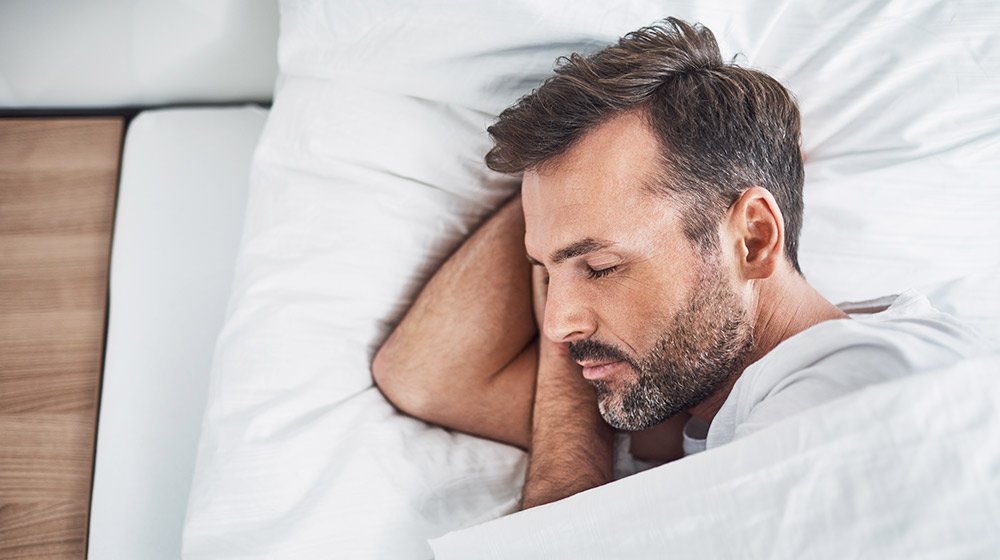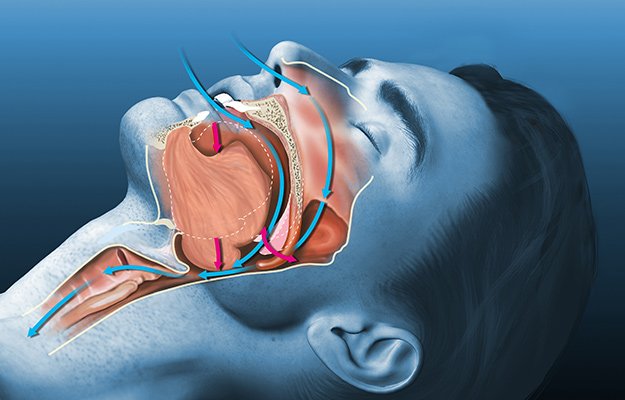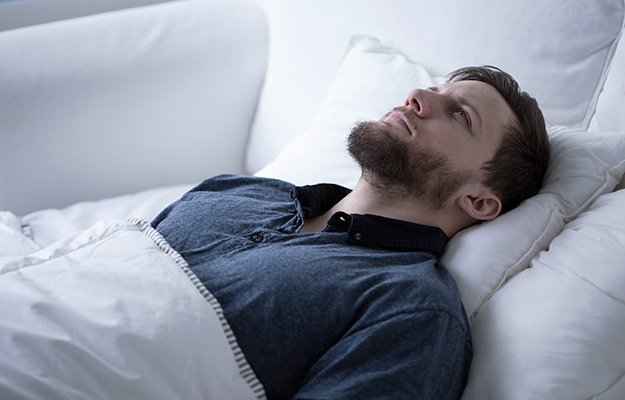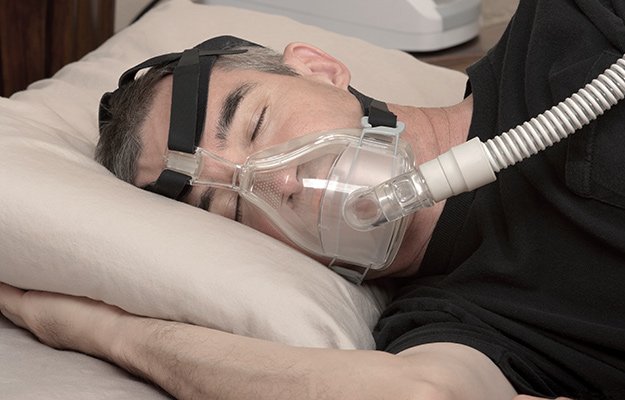
Health Hormone Health

 Sleep apnea is a possibly grave disorder in which breathing slows or stops during sleep. These pauses can last for several seconds or for minutes in some cases and happen many times per night. The most common form of sleep apnea (discussed below) produces loud snoring that precedes each pause in breathing. Upon resumption of breathing, an audible gasp or choking sound can also be heard.
Sleep apnea is a possibly grave disorder in which breathing slows or stops during sleep. These pauses can last for several seconds or for minutes in some cases and happen many times per night. The most common form of sleep apnea (discussed below) produces loud snoring that precedes each pause in breathing. Upon resumption of breathing, an audible gasp or choking sound can also be heard.
 Central sleep apnea is so called because it relates to your central nervous system. Central sleep apnea is the condition in which the brain fails to signal the right muscles to keep taking those breaths. This condition is most common in patients with other neuromuscular disorders like ALS or who have suffered a stroke.
Central sleep apnea is so called because it relates to your central nervous system. Central sleep apnea is the condition in which the brain fails to signal the right muscles to keep taking those breaths. This condition is most common in patients with other neuromuscular disorders like ALS or who have suffered a stroke.
 Sleep apnea treatment depends on the root cause as well as your overall health. Discuss your condition with a doctor who might make recommendations on lifestyle first before resorting to medical treatment.
For example, overweight sufferers of sleep apnea should lose weight first before deciding to resort to a CPAP (breathing machine). Or if you happen to be a smoker, that one factor may undermine any other sleep apnea treatments a doctor would recommend. So smokers should also consider making this important lifestyle change concurrent with seeking medical treatment.
For the severest cases, lifestyle changes may not be sufficient to provide relief. In these cases, the primary defense against sleep apnea is a machine known as a Continuous Positive Airway Pressure (or CPAP) machine. This device consists of a motor attached to a tube with a nose/mouth mask at the other end the user wears while sleeping.
For less severe cases, sometimes your dentist can devise an oral appliance that helps to keep your throat open during sleep. These devices do not affect airflow or air pressure, but are more comfortable to wear so are preferred by those patients for whom they are sufficient.
There is a lot to think about – we understand. If you have questions about sleep apnea or any of the conditions discussed here, connecting with a doctor in a discrete setting has never been easier.
Opt Health is a telehealth platform that reconnects men with wellness, fitness, strength, and sexual vitality through scientific preventive medicine. From your own home, you can schedule with a physician, meet one-on-one via video conference, receive test results, and have medications delivered to your door.
For questions, inquiries, or appointments, don’t hesitate to contact us. Get personalized support and insight from top-tier physicians available 24/7.
Up Next:
Sleep apnea treatment depends on the root cause as well as your overall health. Discuss your condition with a doctor who might make recommendations on lifestyle first before resorting to medical treatment.
For example, overweight sufferers of sleep apnea should lose weight first before deciding to resort to a CPAP (breathing machine). Or if you happen to be a smoker, that one factor may undermine any other sleep apnea treatments a doctor would recommend. So smokers should also consider making this important lifestyle change concurrent with seeking medical treatment.
For the severest cases, lifestyle changes may not be sufficient to provide relief. In these cases, the primary defense against sleep apnea is a machine known as a Continuous Positive Airway Pressure (or CPAP) machine. This device consists of a motor attached to a tube with a nose/mouth mask at the other end the user wears while sleeping.
For less severe cases, sometimes your dentist can devise an oral appliance that helps to keep your throat open during sleep. These devices do not affect airflow or air pressure, but are more comfortable to wear so are preferred by those patients for whom they are sufficient.
There is a lot to think about – we understand. If you have questions about sleep apnea or any of the conditions discussed here, connecting with a doctor in a discrete setting has never been easier.
Opt Health is a telehealth platform that reconnects men with wellness, fitness, strength, and sexual vitality through scientific preventive medicine. From your own home, you can schedule with a physician, meet one-on-one via video conference, receive test results, and have medications delivered to your door.
For questions, inquiries, or appointments, don’t hesitate to contact us. Get personalized support and insight from top-tier physicians available 24/7.
Up Next:
Your health, your terms. Discover how personalized care can transform not just the way you feel, but how you live.